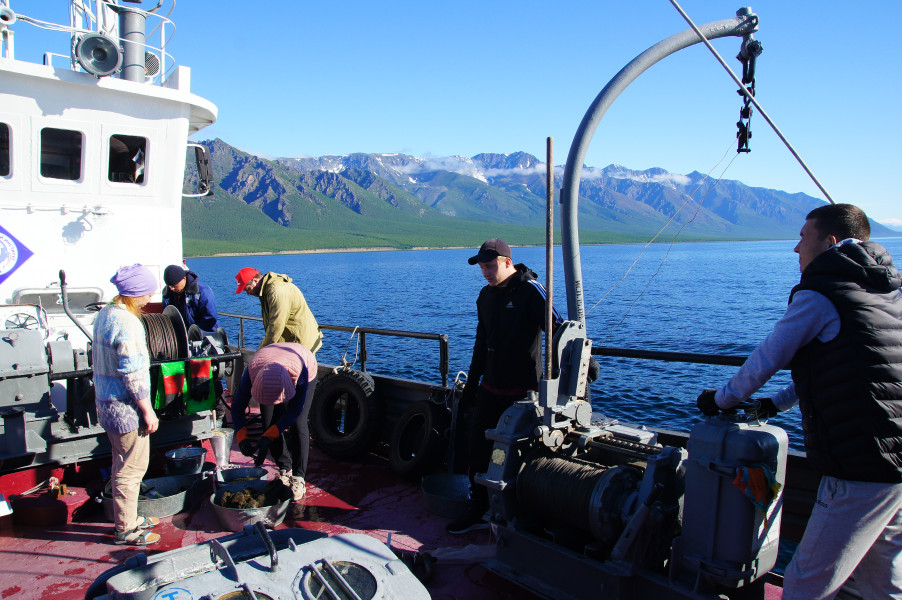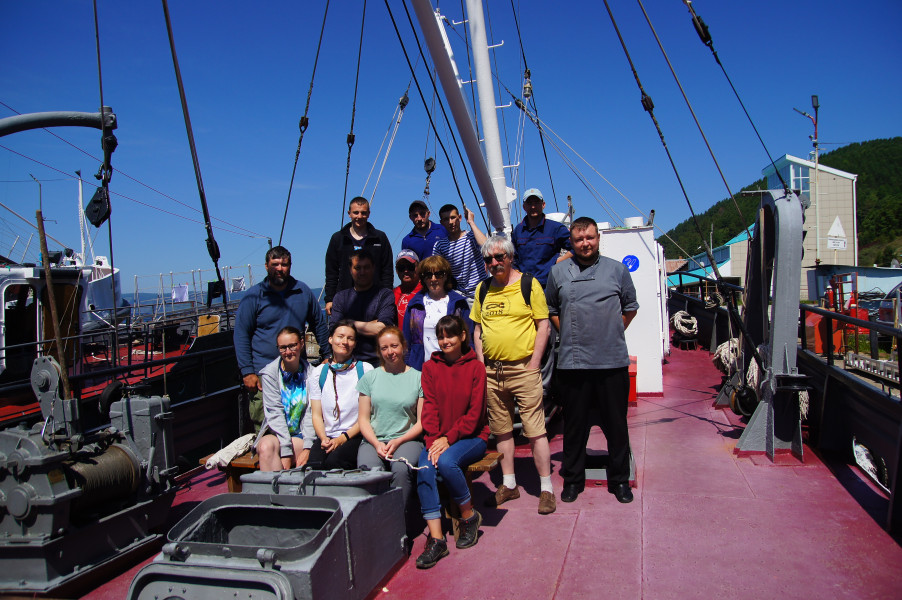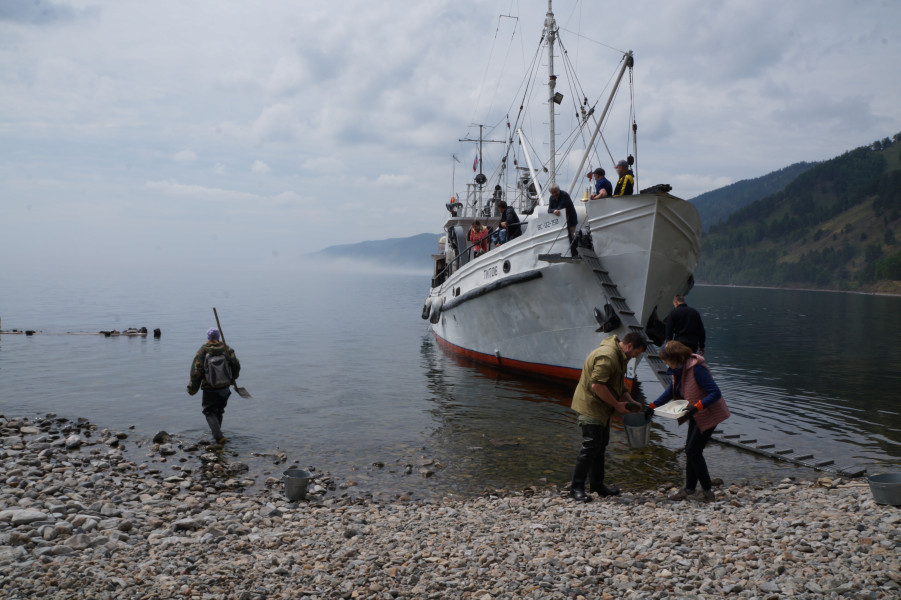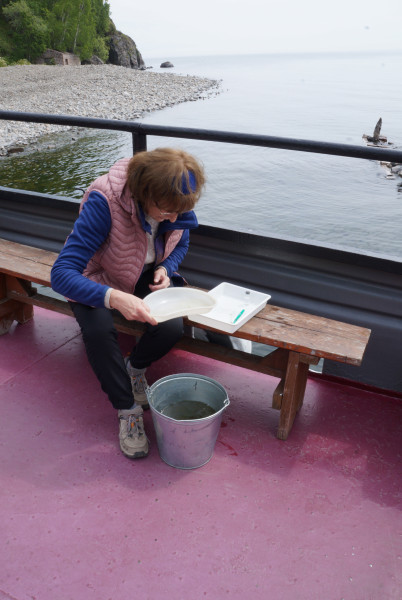Expedition on board the RV “Titov” from 17 to 28 June 2022
From 17 to 28 June 2022, the expedition was carried out on the board the RV “Titov” within the programmes “The genetics of the communities of the Baikal organisms: structure of the genefond, strategies of the conservation” (project № 0279-2021-0010) (led by D. Shcherbakov) and “Comprehensive studies of the coastal zone of Lake Baikal: long-term dynamics of communities under the influence of various environmental factors and biodiversity; causes and consequences of negative environmental processes” (project № 0279-2021-0007) (led by O. Timoshkin). Sampling was conducted in the coastal zone of all the three basins of Lake Baikal. Seven staff members of the Laboratory of Genosystematics and one staff member of the Laboratory of Aquatic Invertebrate Biology participated in the expedition.
The aim of the expedition is to study the species composition, ecological features, morphometric indicators, population-genetic characteristics of gastropods and bivalves, amphipods, chironomids, water bears, hydras and other invertebrates of the littoral zone of Lake Baikal and adjacent water bodies.
Sampling was carried out at 32 stations using dredge, bottom-sampler, hydrobiological scrapers and dip nets from the water's edge to 30 m depth. In total, more than 90 samples of invertebrates were collected and recorded. Preliminary analysis showed that the samples contain amphipods of the Baikal endemic genera Eulimnogammarus, Acanthogammarus, Brachyuropus, Crypturopus, etc., Baikal endemic chironomids of the genus Sergentia, endemic and Palearctic species of the bivalves and gastropods, various species of water bears, hydras of the genera Hydra circumcincta and Hydra oligactis.
To study the adaptations of aquatic invertebrates for life under high temperature conditions, the representatives of the Palearctic mollusk species Lymnaea stagnalis were collected in hot springs near Khakusa Bay and Kotelnikovsky Cape in the littoral zone of Lake Baikal. The search for adaptations is supposed to be carried out by comparing the genomes of organisms using the new generation DNA sequencing technology.
Sampling was carried out at 32 stations using dredge, bottom-sampler, hydrobiological scrapers, and dip nets. The samples of invertebrates were collected for comparative analysis as well as in hot springs near Khakusa Bay and Kotelnikovsky Cape.







